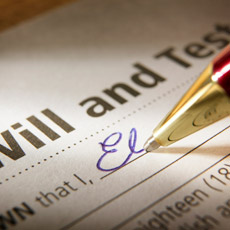I'm a licensed Aircraft Mechanic & Inspector with twenty five-plus years in the field. I've had a varied career so far, with time spent in the sheetmetal, mechanic, and inspection specialties. Most of my time is on heavy Boeing and McDonnell Douglas aircraft, of the passenger, cargo, and experimental type. This career isn't for everyone, but I enjoy it.
Please do NOT ask me to troubleshoot problems with your airplane, that is not what this Q&A is for.
Now, I won’t cheat and try to find out before I answer, though I may afterwards. I am not aware of any law or regulation that commands a flight crew to be 100% honest about flight delays with their passengers. It may be an airline policy, or just that particular crew being honest. It shouldn’t upset you, other than the fact that you are delayed. There will be no "baling wire and duct tape" repairs going on just to get you out of the gate; trust me. Either it will get fixed right in a certain time period while you sit there, or they will deplane you and make other plans. Really it’s a common thing to have last minute problems. Usually they are not flight critical and can be deferred, such as a light burned out, or a climate control not keeping the inside temp right. Other things, like a tire or brake change, or a scheduled maintenance that just ended up taking a few extra minutes, is all that it is. You know how it can be; the second you tell someone that a certain simple job will take a half hour to do, that’s when Murphy’s Law kicks in and makes something a little harder. All in all, I’d rather the airline was honest with me about such things. That way you know you can trust them about other things, which may be more important for you to know. :)
There is no difference in the records or maintenance requirements for US certified air carriers. They are all held to the same high standard. Whether you are talking about the smallest mom and pop airline with a Cessna 310 as their only airplane, or American Airlines; they all have to toe a very stringent line with the FAA. I wouldn't be any more or less concerned with safety with any one airline over another.
No, aircraft mechanics do not need to be pilots. As far as being able to take off, fly, and successfully land and aircraft; I think I’ll waver between Yes! no, and maybe. Personally, I think I could probably set up an airplane to take off, and get it into the air. Maybe able to keep it in the air for a bit even. But landings, I’ve noticed, are a little more delicate. Don’t get me wrong, I could plant an airplane on the ground. You just might not want to be on board with me.
I have in the past, and still occasionally do interact with the pilots in the course of my work. I've generally found that pilots and mechanics get along fairly well. Each group teases the other sometimes, and often have choice nicknames for one another. It's usually a friendly and respectful relationship.
Claims Adjuster
Wills and Estates Lawyer
 Can I leave everything to my pets?
Can I leave everything to my pets?
Cruise Ship Officer
 Is the "women and children first" rule still in effect?
Is the "women and children first" rule still in effect?
At my current job, no I can't get any discounts or free flights. It depends on who you work for. If you work for an actual passenger airline, there is usually an employee discount of some kind, or free flying via standby status. Some other employers have arrangements with airlines for discounts.
I have always heard that too, though I don’t know for sure if it is true. That is where the Flight Data Recorder (FDR) is typically located, and they usually survive crashes (though they are practically magically armored by design to do so). If it was me, based on nothing but knowing about the aircraft structure, I would feel safest over the wing area, as close as I could sit to the centerline of the wings. That center wingbox area is one of the beefiest parts of structure that you will ever see on an airplane. Though that does put you closer to the fuel tanks, so that is kind of a risk trade off. It probably comes down to luck more than anything, relating to how the airplane were to hit the ground. All that speculation said, keep in mind your statistics, and remember that flying is super safe when measured by almost any standard. Miles flown per year, miles per passenger, etc. It is a very safety conscious industry, staffed by skilled professionals. When I fly, I really do not even consider the chance of crashing, it is so remote.
I’ve never had to deal with that situation. If something like that were to happen, companies have plans in place to deal with it. Without looking at my current company handbook (I will after I answer so it isn’t cheating); I would call Crew Scheduling, or Maintenance Control, tell them what is going on, and do whatever they advised me to do. We have on site safety department personnel at several locations, and arrangements at outstations, which can provide for a breathalyzer, or other tests. Those people would be called in I imagine, to test the pilot. Certainly never let someone in that condition fly the plane.
-OR-
 Login with Facebook
Login with Facebook (max 20 characters - letters, numbers, and underscores only. Note that your username is private, and you have the option to choose an alias when asking questions or hosting a Q&A.)
(A valid e-mail address is required. Your e-mail will not be shared with anyone.)
(min 5 characters)
By checking this box, you acknowledge that you have read and agree to Jobstr.com’s Terms and Privacy Policy.
-OR-
 Register with Facebook
Register with Facebook(Don't worry: you'll be able to choose an alias when asking questions or hosting a Q&A.)